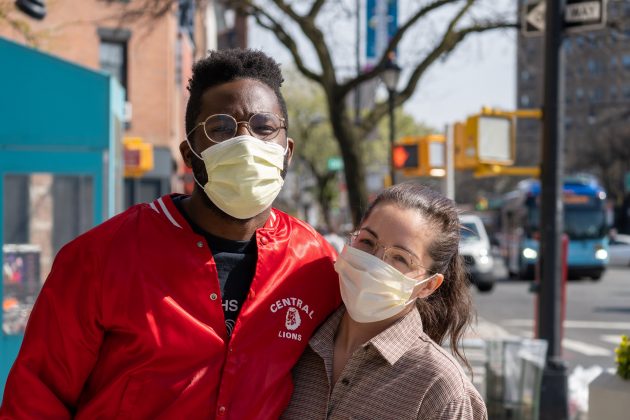July 2, 2020
How COVID Has Changed Sex & Dating

Today on Global TV’s The Morning Show, Jess discussed how sex and dating is being normalized during the COVID-19 pandemic with Carolyn and Jeff. Read her expanded notes below, and don’t forget to watch the segment!
1. Discussions of testing have become more normalized and hopefully the destigmatization of sex talk outlasts the pandemic. If we can talk about hand washing, wearing masks and physical distancing with total strangers, hopefully we’ll continue the conversation with our lovers to discuss STIs, condom use and regular testing.
2. Safer sex practices have shifted and public health agencies are getting more creative in their approaches. NYC Health official documents now talk about getting kinky:
a. Wear a face covering or mask. Maybe it’s your thing, maybe it’s not, but during COVID-19 wearing a face covering that covers your nose and mouth is a good way to add a layer of 3 protection during sex. Heavy breathing and panting can spread the virus further, and if you or your partner have COVID-19 and don’t know it, a mask can help stop that spread.
b. Make it a little kinky. Be creative with sexual positions and physical barriers, like walls, that allow sexual contact while preventing close face to face contact.
c. Masturbate together. Use physical distance and face coverings to reduce the risk.
3. Sexual health tech has shifted. We’re seeing more sex tech options not only related to toys and online dating, but also in the health tech field that intersects with safer sex practices. Canadian apps like Maple are being an uptick in virtual sexual health inquiries online — people looking for birth control prescriptions/renewals, support with ED and more.
And at-home testing from companies like Let’s Get Checked is on the rise; rather than going to your doctor’s office, they mail you an at home test kit, you return the sample in a prepaid envelope and then they share your results with you (privately) online.
4. Commitment to relationships may also be on the rise.
Situationships have become relationships. Cohabitating situations have evolved into engagements. Discussions of dating practices have become more detailed and straightforward. Some people are now less likely to make assumptions with regard to exclusivity; they’re explicitly asking for confirmation of it.
Reports of turbo relationships are becoming more common; you move in together to quarantine, but the time spent together feels much longer. An eHarmony survey of than 2,000 folks in the UK found:
- 2/3 (63%) report strengthened relationships after living together during lockdown
- 58% say they now know they want to be with their partner forever
- 59% feel more committed to their partner after managing the pandemic together
In longer term couples, 42% say they appreciated the quality time they have been able to spend together.
5. Long distance relationships are opening up a whole new world to daters. Why not date someone in Italy or Romania if the trust is going to remain online? Tinder has added the passport feature and more interactive online dating is now the norm — beyond video options, apps are adding question games (Bumble), online speed dating (League Live) and other integrated options. Online dating is no longer a means to an in-person relationship, but it can the relationship in and of itself.










